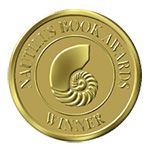 How to Write an Award-Winning Nonfiction Book
How to Write an Award-Winning Nonfiction Book

There’s the question of how to write a nonfiction book and then there’s how to write the kind of book that wins prestigious awards, gets recommended by avid fans and changes people’s lives.
I’m fortunate to work with many, many authors who accomplish the latter. At “Write Your Book” (the DBA I used when I formed my business) we often celebrate a couple of Nautilus Award Winners each year, along with some Stevie Awards for business books and many other national and international awards—independent author awards, international book awards and even the Frank McCourt Prize in 2016 (to Dan Tomasulo for American Snake Pit).
So, it was exciting to hear that once again our clients have won their share of Nautilus Book Awards during the late-April announcement.
Congratulations to Our Nautilus Book Awards Winners!
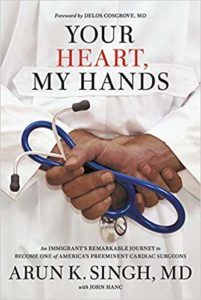
Arun Singh, MD’s Your Heart, My Hands won the Gold Nautilus Award in the Heroic Journeys category and Scott Symington, PhD’s Freedom from Anxious Thoughts & Feelings: A Two-Step Mindfulness Approach won the Silver Nautilus Award in the competitive Psychology category. And Jill Sylvester, LMHC’s Trust Your Intuition: 100 Ways to Transform Anxiety and Depression for Stronger Mental Health won the Silver Nautilus Award in the Personal Growth Category.
Looking at how these three authors went about writing their books can offer us many insights into how to write an award-winning non-fiction book. Let’s begin with Dr. Scott Symington’s Freedom from Anxious Thoughts & Feelings.
[bctt tweet=”Tips for Writing an Award-Winning Psychology / Self-help Book #WritingCraft #Nonfiction” username=”LisaTener”]
I began working with Dr. Symington after he had written an early draft of his book. Scott came to me for feedback on the
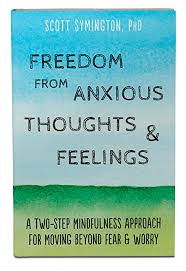
book and guidance and support to write a successful book proposal.
- One of the things that Dr. Symington does so well is to bring the stories of his patients to life in the kind of detail that helps readers see themselves in the story and apply the lessons to their own lives. If you are writing a self-help, how-to, health or business book, consider including stories and make those stories leap off the page by including specific and quirky details.
- Dr. Symington found a way to apply evidenced-based strategies in a way that worked intuitively for people. As Dr. Symington said in this author interview, “I was frustrated with the translation problem in psychology, where helpful principles and evidenced-based-strategies, such as mindful acceptance, are hard to convert into concrete mental and emotional steps inside your person—especially in the midst of anxiety or a challenging mood…People are often at a loss in how to apply the very thing that will set them free. Aware of this translation problem, I became determined to find a better way of communicating and applying the wisdom of psychology (and spirituality). What came out of this journey was the Two-Screen Method.” Can you find a way to translate evidence based strategies into accessible exercises or tools?
-

Award winning author Dr. Scott Symington Another is that Dr. Symington fine tuned the system he teaches in the book over the course of many years. By the time he wrote his book proposal, he had tested and perfected the system! He knew how to describe it and teach people to use it in their own lives, having taught it to thousands of people in trainings and one-on-ones. While you don’t have to wait years to put your system in a book, do test it on your target audience and get feedback on what works for them, where they need more support, what’s unclear or confusing, etc. Now is a great time to teach a class online and get feedback. Agents, publishers and readers will be happy to know that you’ve put your ideas, tools, exercises and systems to the test.
- Dr. Symington worked on his author platform, which was certainly a big plus with his publisher. He was a popular speaker and trainer through churches and CEO groups.
- Dr. Symington’s flexibility was also a big plus in landing a book deal. When we approached his dream publisher, the publisher wanted a few changes, based on their experience with similar books. In particular, for their market, they had found that books that solve one problem (anxiety) tend to sell better than those that solve multiple problems (anxiety, addiction and depression). Dr. Symington was willing to make the changes, knowing that the publisher knows their book-buying audience best. While it’s important to listen to your intuition, do take seriously the feedback you receive from your book coach, editor, agents and publishers and remain open minded to their feedback.
A Business Plan for Your Nonfiction Book: Key to Success

If you are intrigued about Dr. Symington’s Two-Screen Method for coping with anxiety, check out the Live online CE (continuing education) course he is teaching this Friday through Bookshelf to Couch: How Not To Worry- The Two-Screen Method®
This summer Dr. Symington plans to launch the Two-Screen Method Academy which will offer short engaging teaching videos designed to help people worry less, boost their mood and reach their potential. And this is another great lesson for aspiring authors: those authors who have a business plan for their book will reach more readers, have a greater impact, and make more money with their books. So consider how you’ll get the book into the hands of readers in financially sustainable ways.
[bctt tweet=”Tips for Writing an Award Winning #Memoir #WritingCraft” username=”LisaTener”]
This was the third book award for Your Heart, My Hands: The book also won a Gold Medal in the Living Now Book Awards, and a Silver Medal in the Feathered Quill. As you well know, winning any award is something an author or writer can take great pride in. But winning multiple awards is special. The power of Dr. Singh’s story and the obstacles he overcame to become a leading heart surgeon made Your Heart, My Hands a natural winner for the Gold Nautilus book award in the category of heroic Journey.
Dr. Arun Singh grew up in poverty, was educated by his mother, had dyslexia, severely broke his hand (and needed multiple surgeries), and “was a man of color in a different culture.” As he says in this interview about writing this memoir: “I had a million excuses not to achieve anything.” Yet, he became a world renowned surgeon and performed over 15,000 open heart surgeries, more than nearly every surgeon in history, despite what would be considered major disabilities.
Highlights of How Dr. Singh Wrote an Award-Winning Nonfiction Book
- One of the most Important aspects of memoir is that you bring events to life for your readers, engaging all of the senses and sharing some of your most vulnerable moments. This usually requires revisiting difficult emotions and memories. Most successful memoirists are willing to revisit pain, suffering and shame in order to bring the reader through the journey from life’s greatest obstacles to catharsis and transformation.
In his book talks I have witnessed Dr. Singh revisit those moments of suffering as his eyes tear and his voice quakes. His story is a powerful one and he doesn’t leave out the hard parts. Those vulnerable moments he shares are what make his memoir a Gold Award winner. Are you willing to write from the depths of memory and then go even deeper and deeper still, to offer your readers the most authentic and powerful experience you can?
-
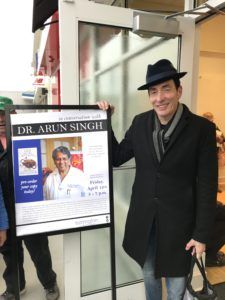
Co-author John Hanc at Dr. Singh’s book talk with hundreds in attendance Co-author John Hanc has this to add about effective and engaging storytelling for memoir and for other nonfiction, including more prescriptive books such as self-help, psychology or health books: “First, one of the things we did that was important to this book was to develop memorable and vivid scenes. Arun had many wonderful stories and anecdotes to share from his remarkable life. To really bring them to life, we spent a lot of time interviewing and re-interviewing Arun on the particulars of these long-ago events (luckily, he has a great memory!). We also did extensive background research to better describe the scenes where these events took place; and perhaps most importantly to create dialogue (based on the best of his recollections), and by introducing other voices and doing some real storytelling. This is obviously important in a memoir, but I think it could be instructive to [readers of this blog] who write prescriptive books, as well. In those books, we often use case studies. These can be flat, clinical and one dimensional. Or they can be brought to life and made more impactful by using some of the same storytelling techniques that Arun and I employed in retelling key episodes in his life.”
-
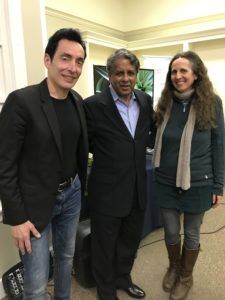
John Hanc and I were two members of John’s team. Here we are at the not-even-standing-room-only book talk—the lines went out the doors and down the block as people could not get in! Another important aspect that makes Your Heart, My Hands an award-winning non-fiction book is that, at the very beginning, Dr. Singh assembled a powerful team. His wife Barbara read and commented on everything he wrote and pushed him hard to explore and add more. She also knew his stories, many of them first hand, and supported him in remembering details. Dr. Singh contacted me early on in his journey and I served in an advisory role as he made decisions about his process before and after the book was written and published. Dr. Singh also realized that, not being a professional writer and being dyslexic, it would be valuable to have a co-writer with extensive writing chops. His co-writer, John Hanc, Is an award-winning journalist and brought so much to the table. John even requested Dr. Singh take him into the operating room to observe heart surgery. This kind of journalistic depth brought much to the project. And Dr. Singh worked with a stellar New York City literary agent, Linda Konner, who secured a book deal with Hachette.
The takeaway? Get clear on your goals, assess what you need to reach them and assemble a team that can help you get there. You don’t have to do it all alone.
You can read more about Dr. Singh’s book writing and publishing journey in this author interview on how to write a nonfiction book. In it, you’ll find how his extensive fan base of patients, colleagues, friends and admirers made his the biggest book launch event I have ever attended! What an inspiration!
The Genius of Jill Sylvester’s Intuition as an Author
Trust Your Intuition: 100 Ways to Transform Anxiety and Depression for Stronger Mental Health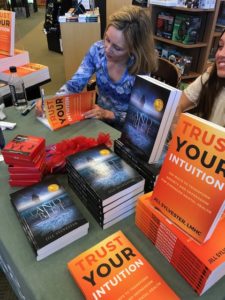 by Jill Sylvester won the Silver Nautilus Award in the Personal Growth Category. Many readers suffering from anxiety and depression can feel overwhelmed. The short chapters with actionable strategies keep it simple and provide immediately actionable tools for readers, even if they only read two pages a day and experiment with that day’s strategy.
by Jill Sylvester won the Silver Nautilus Award in the Personal Growth Category. Many readers suffering from anxiety and depression can feel overwhelmed. The short chapters with actionable strategies keep it simple and provide immediately actionable tools for readers, even if they only read two pages a day and experiment with that day’s strategy.
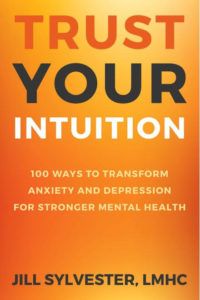 One takeaway for writer’s here is to understand your audience and any specific challenges that will affect how your book can help them; think about what structure and features will help them meet their challenges best. The 100 solutions turns overwhelm on its head, showing that there are so many tools at a reader’s disposal. If something doesn’t work, readers have 99 other possibilities! This spirit of experimentation acknowledges that we’re not all made the same and what works for one person, may not work for another.
One takeaway for writer’s here is to understand your audience and any specific challenges that will affect how your book can help them; think about what structure and features will help them meet their challenges best. The 100 solutions turns overwhelm on its head, showing that there are so many tools at a reader’s disposal. If something doesn’t work, readers have 99 other possibilities! This spirit of experimentation acknowledges that we’re not all made the same and what works for one person, may not work for another.
In Trust Your Intuition, each chapter focuses on experiential change. I love what Jill Sylvester says in the Introduction, “Knowledge is power, but wisdom is rooted in application” and “apply what you learn.” I’m a big fan of experiential learning and this is perhaps the greatest focus in Trust Your Intuition.
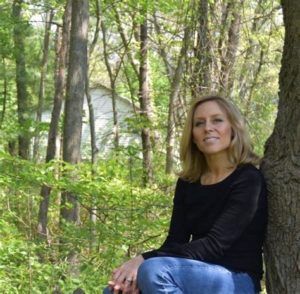 Jill Sylvester also shares some personal stories and examples, letting her readers know she’s been there too. Connecting your story to your readers’ experiences is a powerful way to earn their trust.
Jill Sylvester also shares some personal stories and examples, letting her readers know she’s been there too. Connecting your story to your readers’ experiences is a powerful way to earn their trust.
Another genius of this book is the tone and voice, which truly capture the author’s nurturing and empowering style as a therapist. Even the title, “Trust Your Intuition” begins with the assumption that readers have a super-power and that this is where their healing starts. The problems–anxiety and depression–are left for the subtitle. it’s subtle but incredibly powerful to focus on the resource first and the problem second.
I asked Jill for her thoughts upon receiving the award and any parting advice for our readers she told me, “When you make a decision to share pieces of your story, albeit in a professional and personal manner, it is an affair of the heart and an allowing of the universe to take care of the rest. Trust Your Intuition, and winning this award, is an example of that intention.”
Do you have a dream of Writing an award-winning non-fiction book? What are your takeaways from this post? Do you have any questions for Dr. Singh, Dr. Symington or Jill Sylvester? Please share your comments below.


